
Countable and uncountable nouns interactive and downloadable worksheet
Expressing quantities of countable and uncountable nouns. In English, we use different quantity words: With countable nouns, you can use many, a few, fewer, the fewest: How many brothers do you have? I have a few books in my backpack. There are fewer people here today than there were yesterday. Out of the whole team, John made the fewest mistakes in his work.
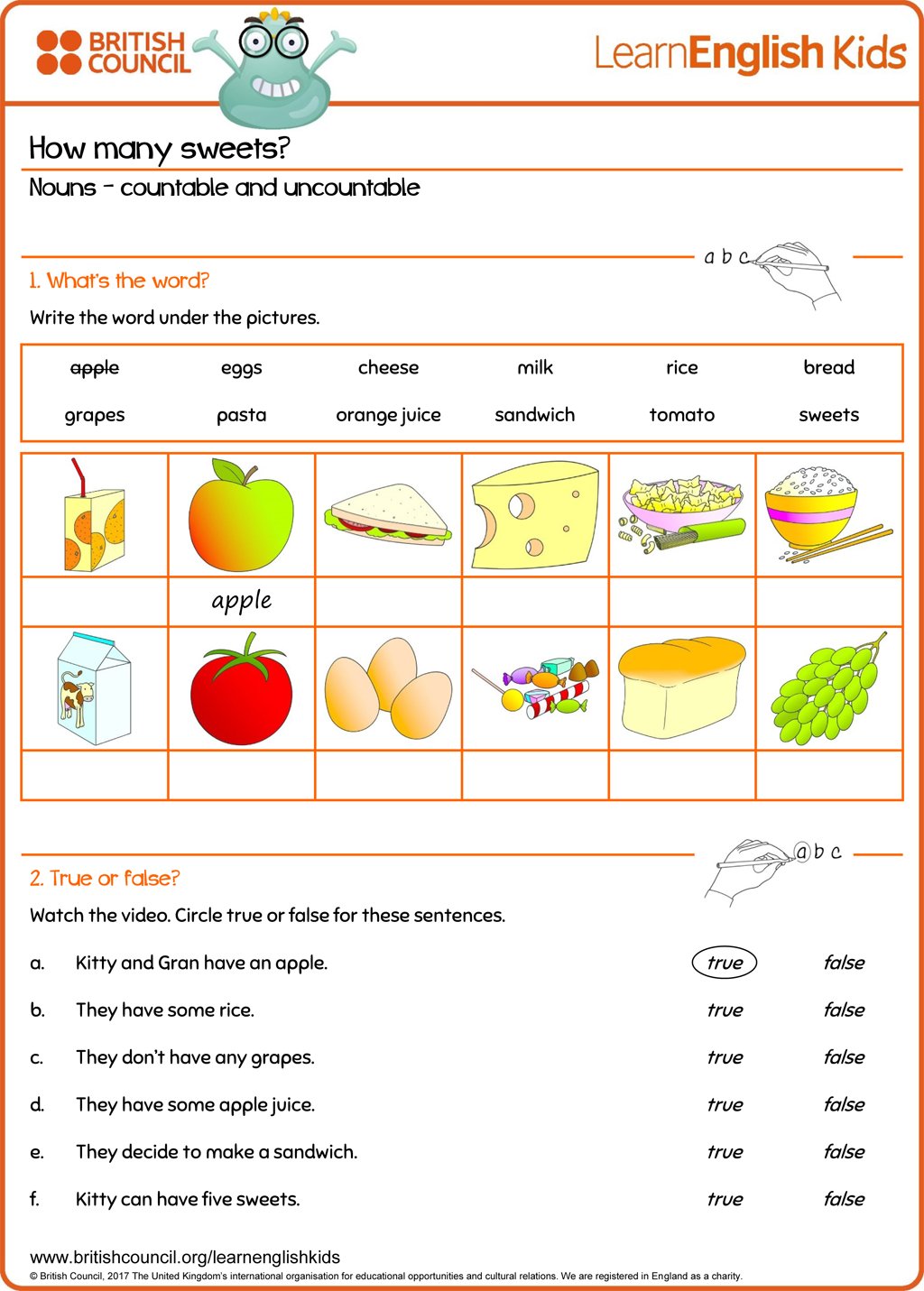
Countable And Uncountable Nouns Worksheets For Kids Unique Countable
Countable and uncountable nouns . It's the day of Oliver and Alfie's cooking competition. Daisy is filming the chefs in action, and Mum is on her way home. Instructions. As you watch the video, look at the examples of countable and uncountable nouns. They are in red in the subtitles. Then read the conversation below to learn more.

Countable And Uncountable Nouns Worksheets Printable Nouns worksheet
10 Examples of Countable Nouns. There are twenty books on the bookshelf. I drank a glass of fresh juice. There are many animals in this zoo. The monkeys were eating bananas. There was no magazine on the table. I took an apple and some grapes in the morning. There are 9057 public libraries in the United States.
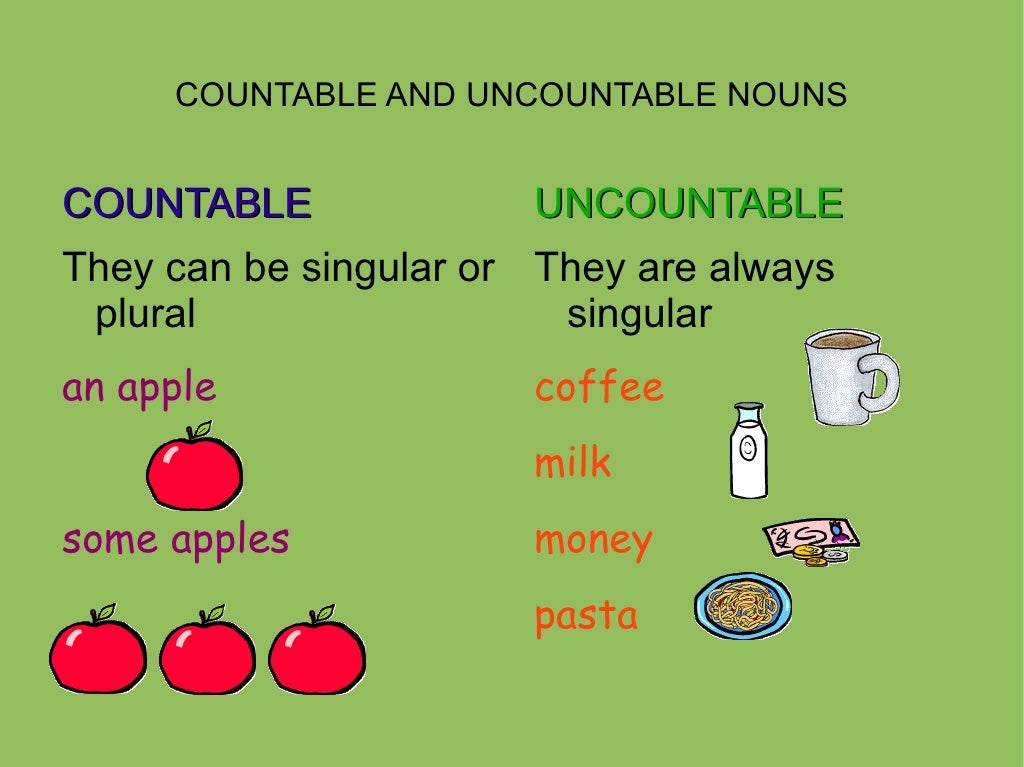
Countable and uncountable nouns
Join millions of learners from around the world already learning on Udemy. Find the right instructor for you. Choose from many topics, skill levels, and languages.
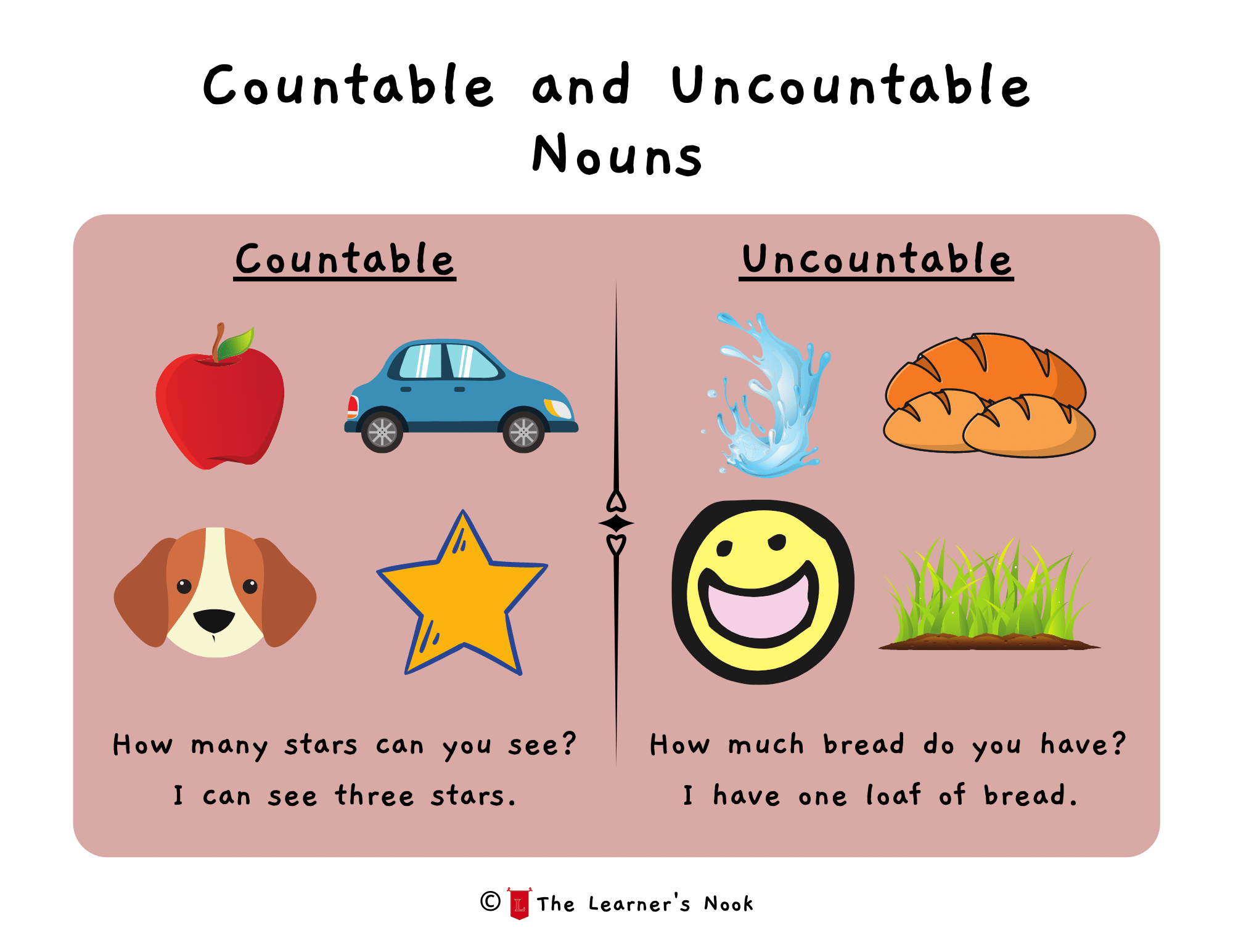
The Learners Nook
Adjectives with Countable and Uncountable Nouns The Basic Rules: Count and Noncount Nouns. A count noun is one that can be expressed in plural form, usually with an "s." For example, "cat—cats," "season—seasons," "student—students." A noncount noun is one that usually cannot be expressed in a plural form.
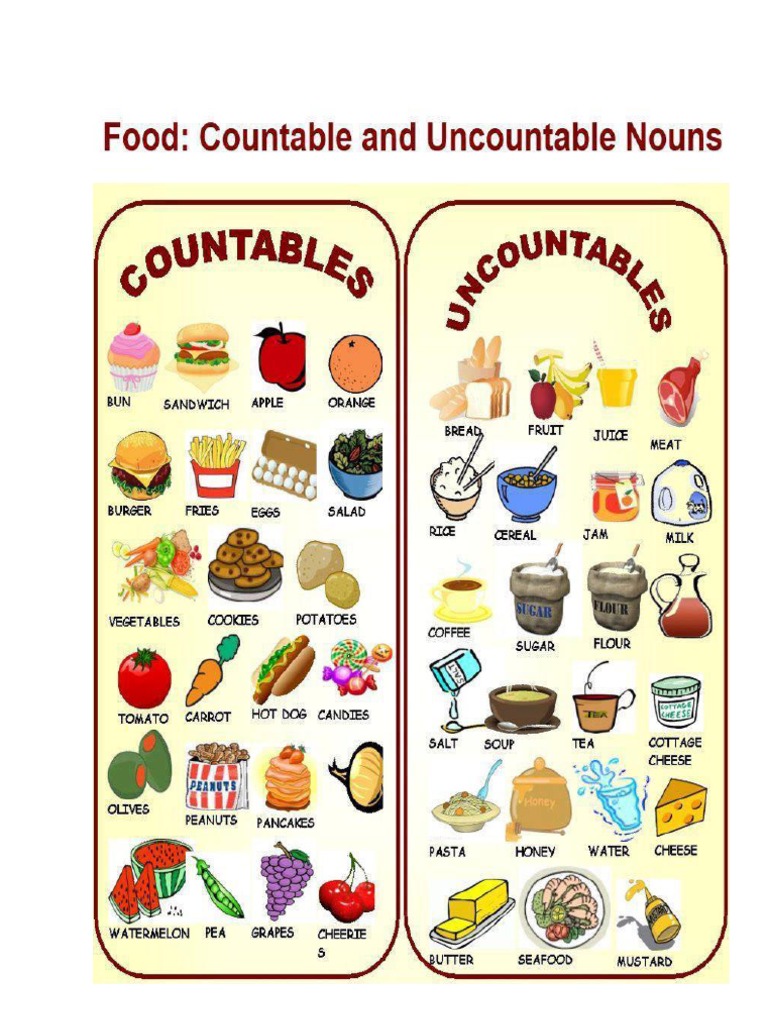
Countable and Uncountable Nouns
EnglishClub: Learn English: Grammar: Nouns: Countable Nouns: Uncountable Nouns Uncountable Nouns. Unlike countable nouns, uncountable nouns are substances, concepts etc that we cannot divide into separate elements. We cannot "count" them. For example, we cannot count "milk". We can count "bottles of milk" or "litres of milk", but we cannot count "milk" itself.

Countable and uncountable noun online presentation
Use a or an before singular nouns. Use some before plural nouns and uncountable nouns in positive sentences. We don't want a test. I can see an ant. They've got some bananas. She needs some glue. Use any before plural nouns and uncountable nouns in negative sentences and questions. I haven't got any oranges.

Countable and Uncountable nouns Uncountable nouns, Teaching nouns, Nouns
Examples of nouns that can be countable or uncountable; Type of noun Uncountable Countable Other examples; Abstract concepts: He rarely feels fear.: A fear of spiders is known as arachnophobia.: Concepts can often be countable or uncountable: weight, love, courage, strength, time, beauty, pressure, vision, business.
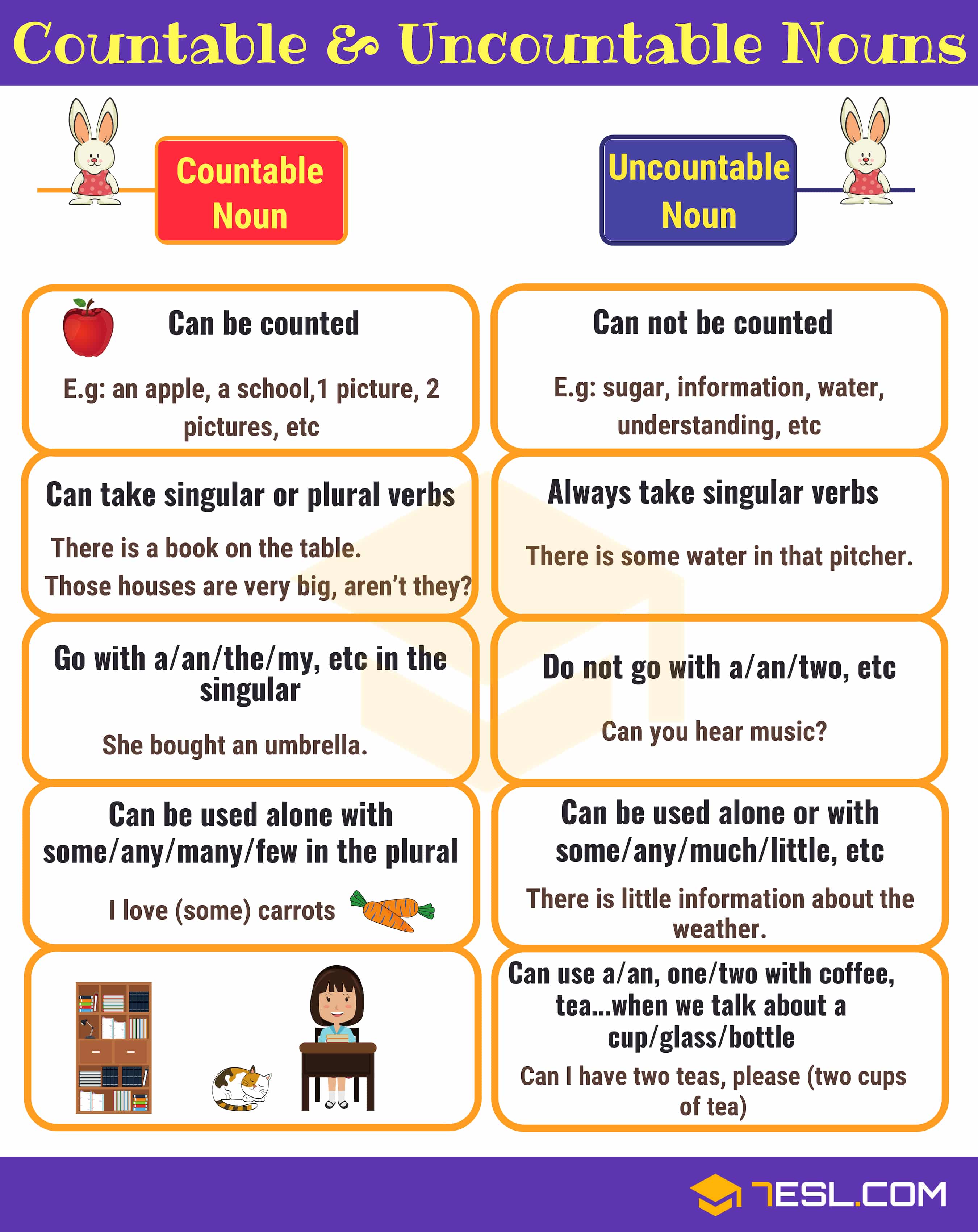
Countable and Uncountable Nouns Useful Rules & Examples • 7ESL
Grammar explanation. Nouns can be countable or uncountable. Countable nouns can be counted, e.g. an apple, two apples, three apples, etc. Uncountable nouns cannot be counted, e.g. air, rice, water, etc. When you learn a new noun, you should check if it is countable or uncountable and note how it is used in a sentence.
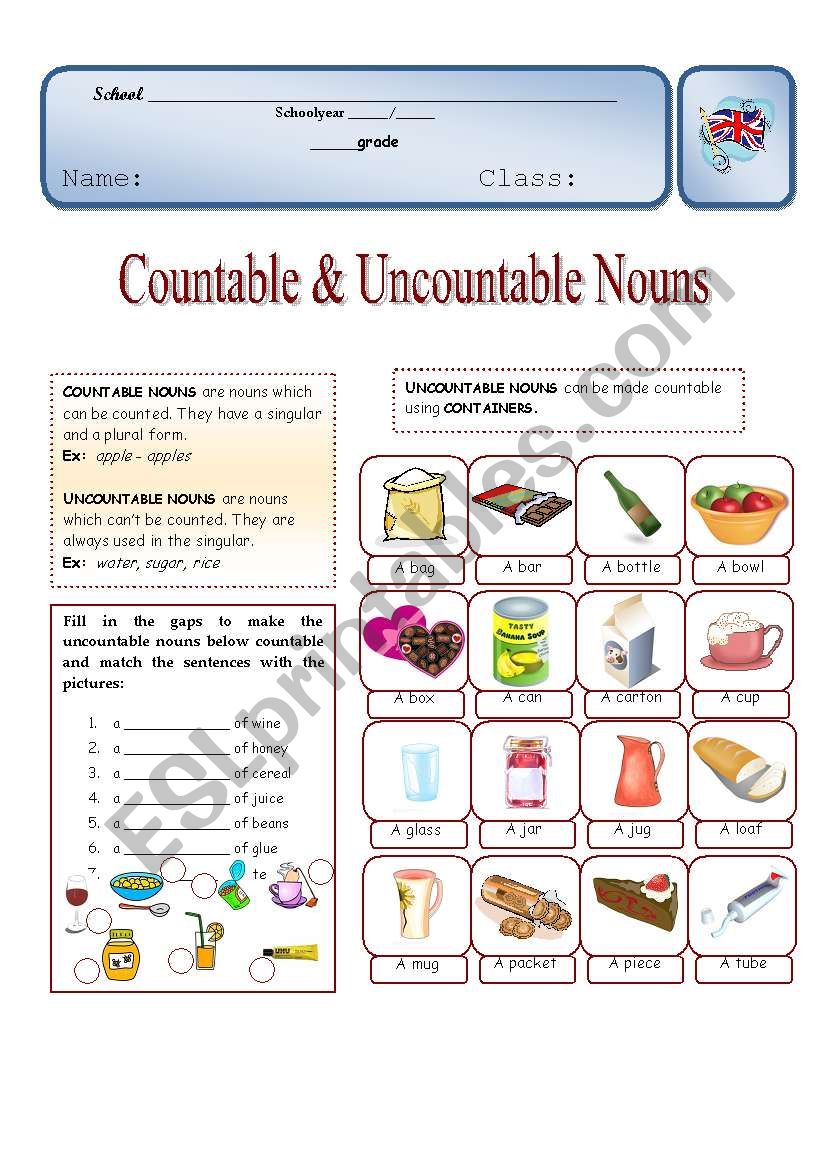
Review Of Countable And Uncountable Nouns Gambaran
Nouns in English grammar can be either countable or uncountable. Countable nouns refer to individual things and we can use them in the singular or plural (e.g. coin/coins ). Most nouns in the English language are countable. Uncountable nouns, also known as mass nouns, refer to things we consider a whole or mass and cannot be counted (e.g. money ).
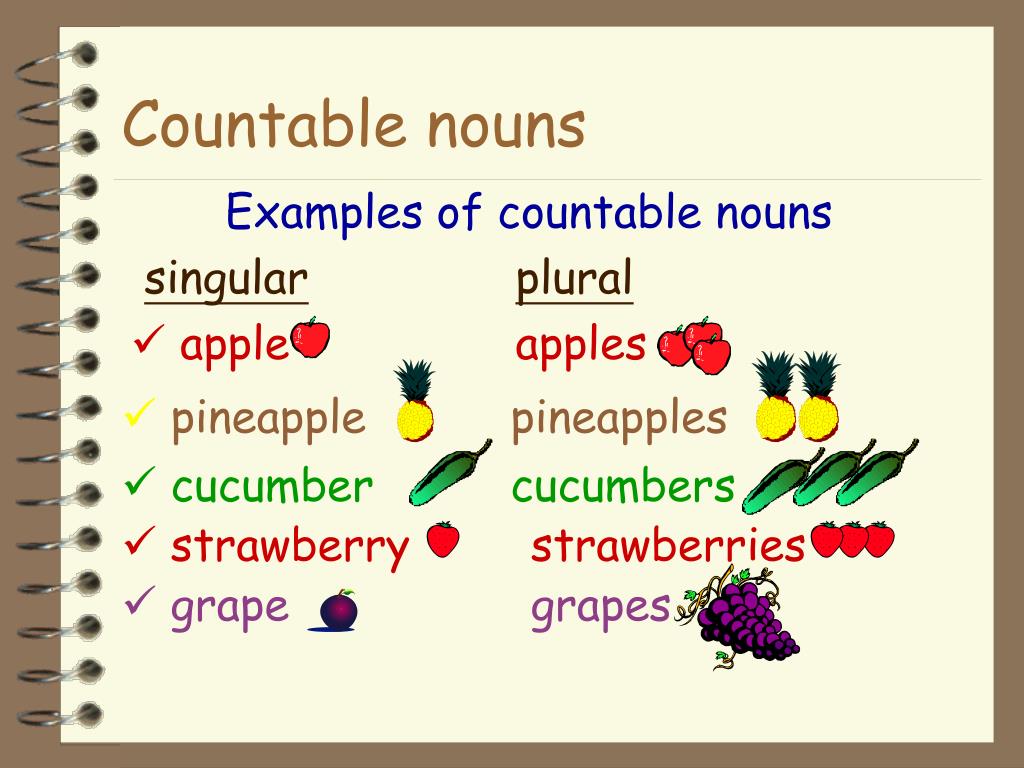
PPT Countable & Uncountable nouns PowerPoint Presentation, free
Riesenauswahl an Markenqualität. English Grammar Today gibt es bei eBay!
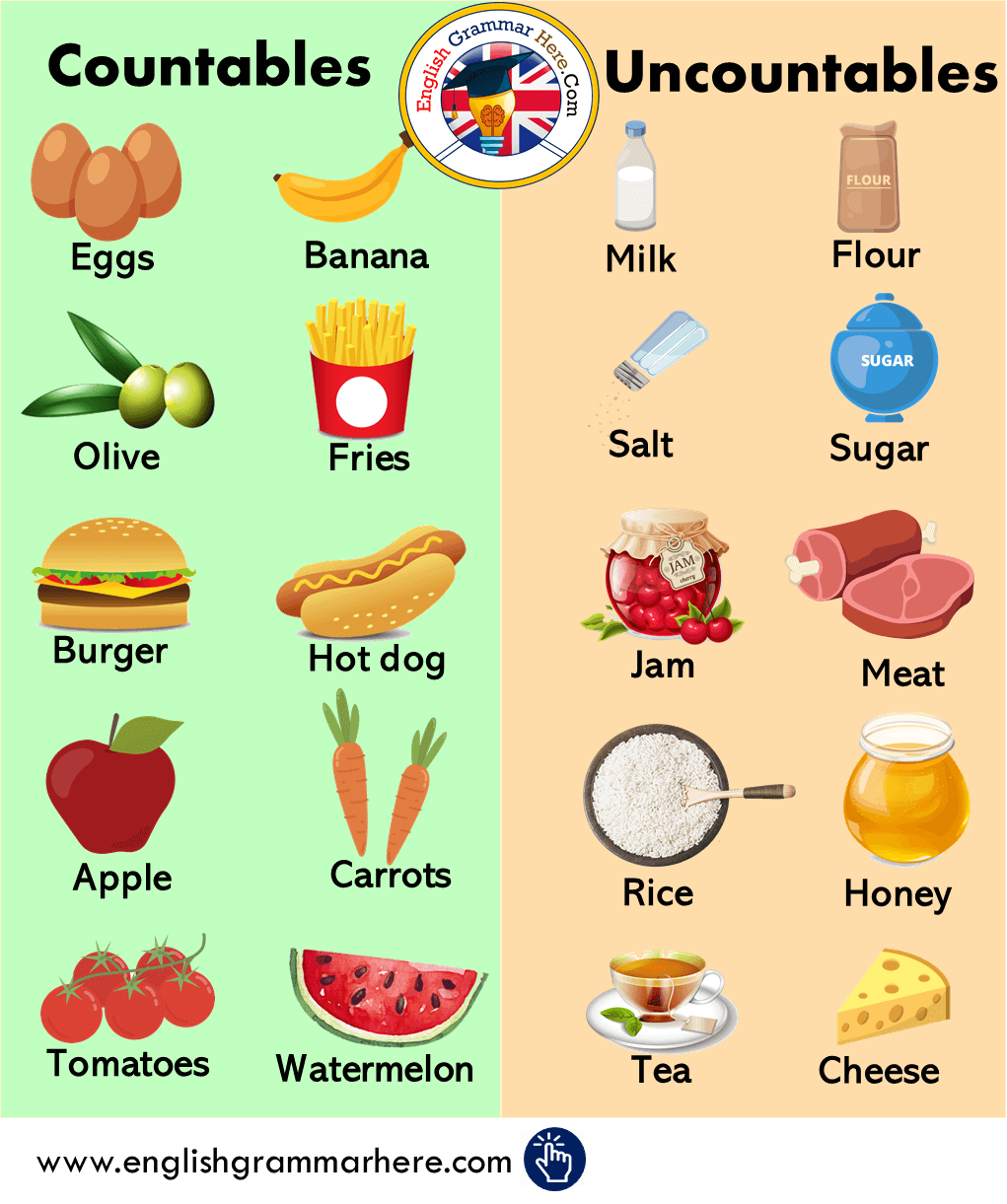
Countable and Uncountable Noun List in English English Grammar Here
Why Countable Nouns Are Important. There are three noteworthy issues related to countable and non-countable nouns. (Issue 1) Use fewer with plurals and less with non-countable nouns. Use fewer when referring to people or things in the plural (e.g., soldiers, lawyers, dogs, pies, clouds).. A low voter turnout is an indication of fewer people going to the polls.

Time Countable Or Uncountable / Nouns that Can Be Countable or
Rice, soil, oil, water, advice, hair, air, pressure, blood, pain, luggage, smoke, data, etc. are a few examples of uncountable nouns. Countable and Uncountable Nouns - Learn what they are and how they are used along with examples in this article. You can also go through the list of countable and uncountable nouns for a better understanding.

Pin on Grammar Worksheet and Exercises
Uncountable nouns. Uncountable nouns, or mass nouns, are nouns that come in a state or quantity that is impossible to count; liquids are uncountable, as are things that act like liquids (sand, air). Abstract ideas like creativity or courage are also uncountable. Uncountable nouns are always considered to be singular, and can stand alone or be.
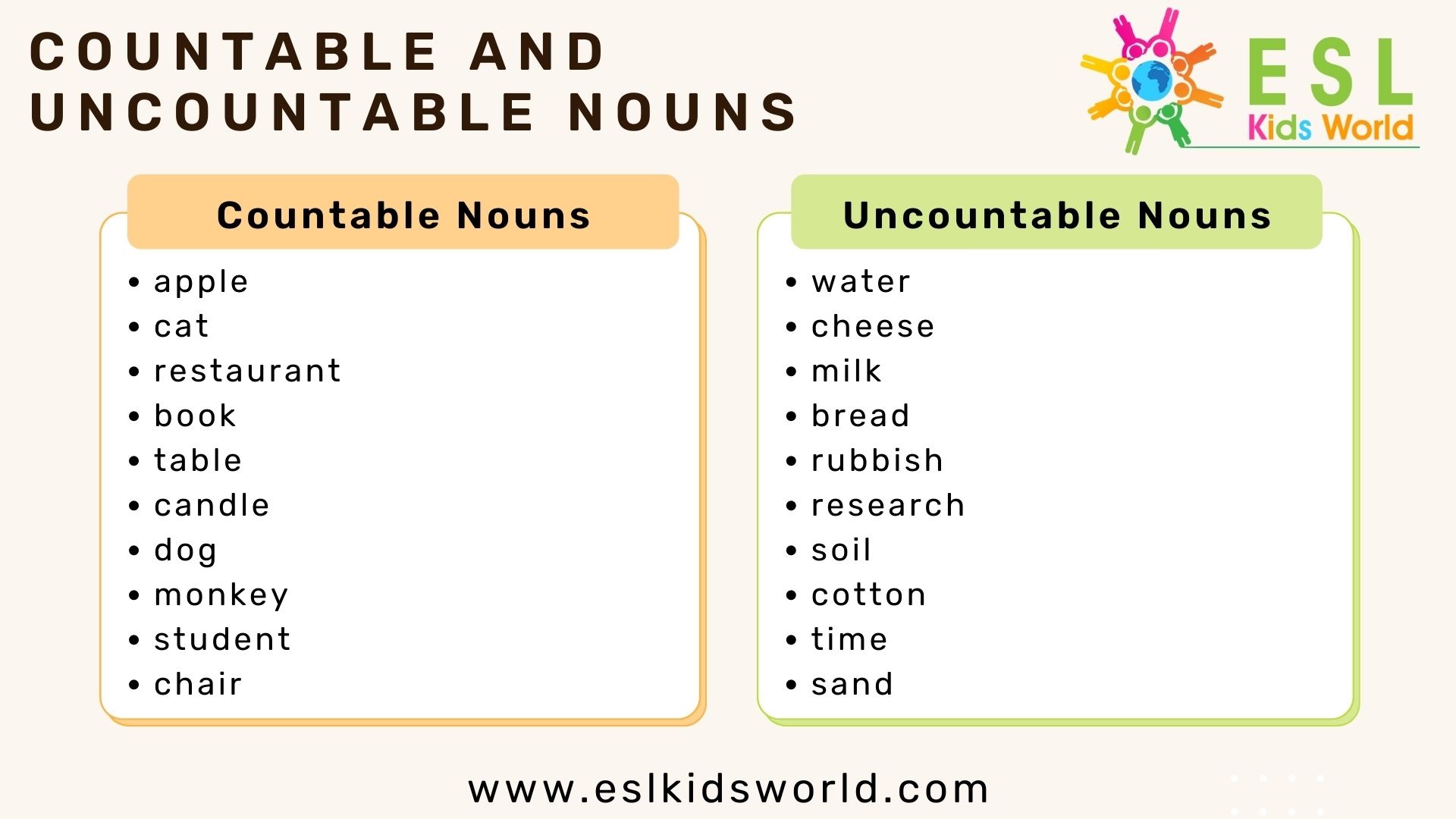
Countable and Uncountable Nouns Countable or Uncountable Noun? ESL
Answers: 1 - countable, 2 - uncountable, 3 - countable, 4 - countable, 5 - uncountable, 6 - countable, 7 - uncountable, 8 - uncountable, 9 - countable, 10 - countable. The award-winning grammar and spell checker that corrects all types of English grammar and spelling mistakes. Start proofreading your texts now.
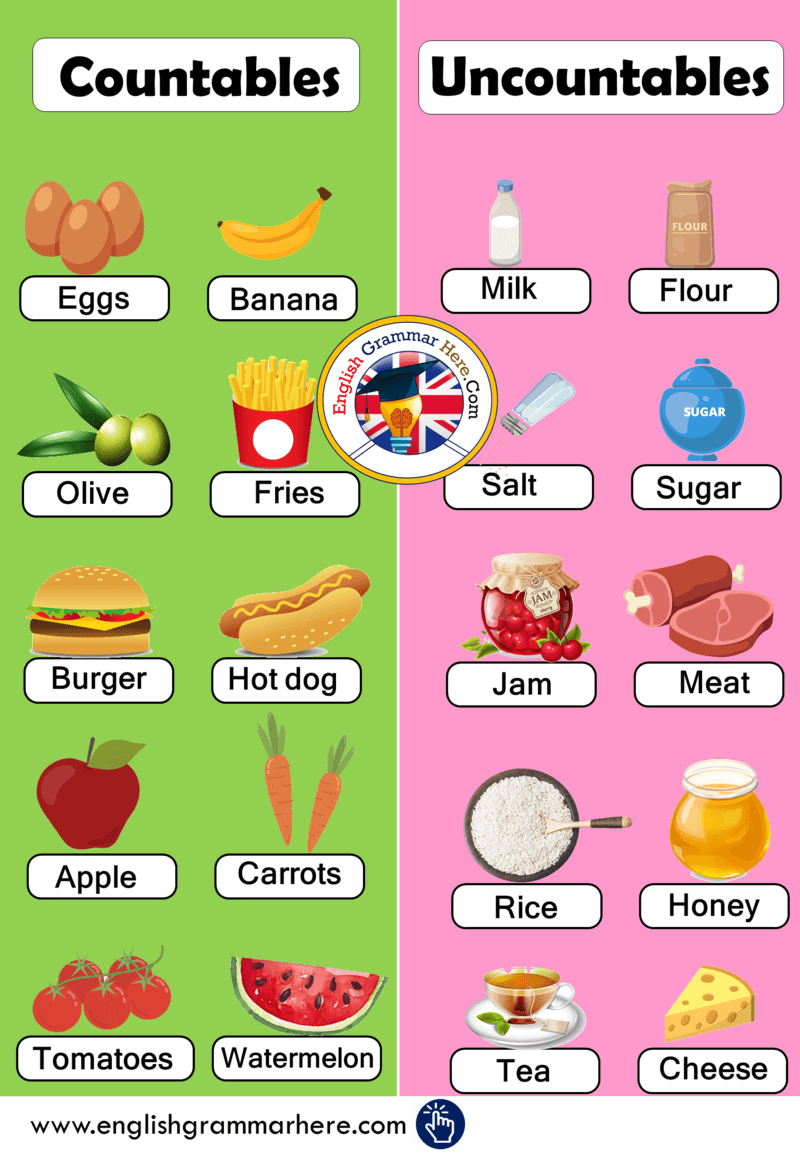
Countable and Uncountable Nouns, Definition and Examples English
It's important to distinguish between countable and uncountable nouns in English because their usage is different in regards to both determiners and verbs. Countable nouns Countable nouns are for things we can count using numbers. They have a singular and a plural form. The singular form can use the determiner "a" or "an". If you want to ask about the quantity of a countable
